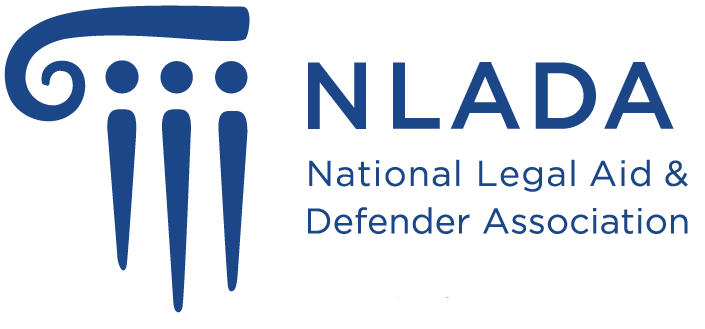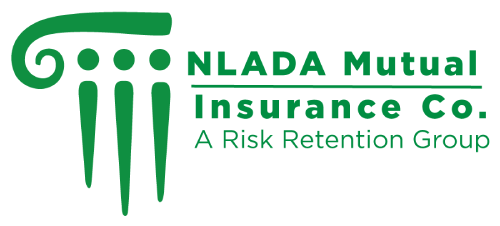From the Preface to the 1997 Edition
The Defender Training and Development Standards (Training Standards) are promulgated by the National Legal Aid and Defender Association (NLADA). In furtherance of its mission of assuring the availability of high quality and competent legal representation to poor people, NLADA advocates for quality indigent defense representation in a variety of ways, including delivery of training programs and the publication of standards and guidelines on many aspects of the delivery of indigent defense services. These Training Standards, which should be read in conjunction with NLADA’s other criminal defense standards, are another attempt to promote and improve quality and competence in the delivery of criminal defense services to the poor.
Competence is the ethical standard for lawyers’ work. For purposes of the continuing professional education of lawyers, the ALI-ABA Report entitled, Enhancing the Competence of Lawyers: The Report on the Houston Conference XI-XII (1981) states, “legal competence is measured by the extent to which an attorney (1) is specifically knowledgeable about the fields of law in which he or she practices, (2) performs the techniques of such practice with skill, (3) manages such practice efficiently, (4) identifies issues beyond his or her competence relevant to the matter undertaken, bringing these to the client’s attention, (5) properly prepares and carries through the matter undertaken, and (6) is intellectually, emotionally and physically capable. Thus, there are five principal elements to legal competence: (1) legal knowledge, (2) legal skills, (3) practice structure, (4) character, and (5) capability.” Id. at 18. See also, Providing Defense Services (3rd Ed. 1992), Commentary to Standard 5-1.5 (“Adequate and frequent training programs are a key component in the provision of quality representation by defense attorneys. Criminal law is a complex and difficult legal area, and the skills necessary for provision of a full range of services must be carefully developed. Moreover, the consequences of mistakes in defense representation may be substantial, including wrongful conviction and death or the loss of liberty. . . . To meet the need for training, programs should be established for both beginning and advanced practitioners, and should emphasize substantive legal subjects as well as effective trial, appellate and collateral attack techniques. In defender offices, it is particularly important that there be entry-level training programs, so that new attorneys receive at the outset of their practice an intensive learning experience that will equip them to provide effective representation.”)
Continuous improvement and training are critical to competence. As NLADA, ABA and other standards and guidelines recognize, the training of defense attorneys is crucial to the delivery of effective services to the clients served by defender organizations. For any organization, continuous improvement through constant training for staff is essential. In defender organizations this includes not only attorneys but also investigators, secretaries, paralegals, social workers, sentencing specialists, managers, computer systems personnel and other employees. The Standards which follow are broad principles of national practices which every defender organization should equal or exceed.
The "black letter" text of these standards is available here for free. NLADA members have access to the full versions of standards, including commentary, related standards, and legal sources. Printed versions of standards are also available in our store.
View All Commentary Printed Standards
More Indigent Defense Standards
1. Defender Training Structure & Funding
Standard 1.1 - Training is Essential
Standard 1.2 - Written Training Plan
Standard 1.3 - Adequate Financial Resources
Standard 1.4 - Training Director and Staff
Standard 1.5 - Organizational Position of Training Director
Standard 1.6 - Director and Staff Qualifications
2. Defender Training Needs Assessment
Standard 2.1 - Regular Needs Assessments
Standard 2.2 - Training Needs Assessment for Organization and for Employees
3. Learning Objectives and Curriculum
Standard 3.1 - Organizational Curriculum
Standard 3.2 - Ethics and Professional Responsibility
4. Learning Experience and Educational Methods
Standard 4.1 - Selection of Methods
Standard 4.2 - Training Staff and Qualifications
Standard 4.3 - Materials and Learning Technologies
Standard 4.4 - Learning as an Ongoing Process
Standard 4.5 - Ongoing Publications and Distribution of Training Materials
Standard 4.6 - Maintenance of Training Resources
5. Learning Environment
Standard 5.1 - Physical Setting
Standard 5.2 - Joint Training
Standard 5.3 - Limitations on Use of Defender Resources
6. Evaluation of Learning; Accreditation
Standard 6.1 - Systematic Evaluation of Programs and Materials
Standard 6.2 - Defender CLE Accreditation
7. Death Penalty Defense and Other Complex and Specialized Practice Areas
Standard 7.1 - Death Penalty Defense
Standard 7.2 - Complex and Specialized Practice Areas
8. Organizational Development
Standard 8.1 - Management and Leadership Skills
9. Quality Assurance
Standard 9.1 - Quality Assurance

